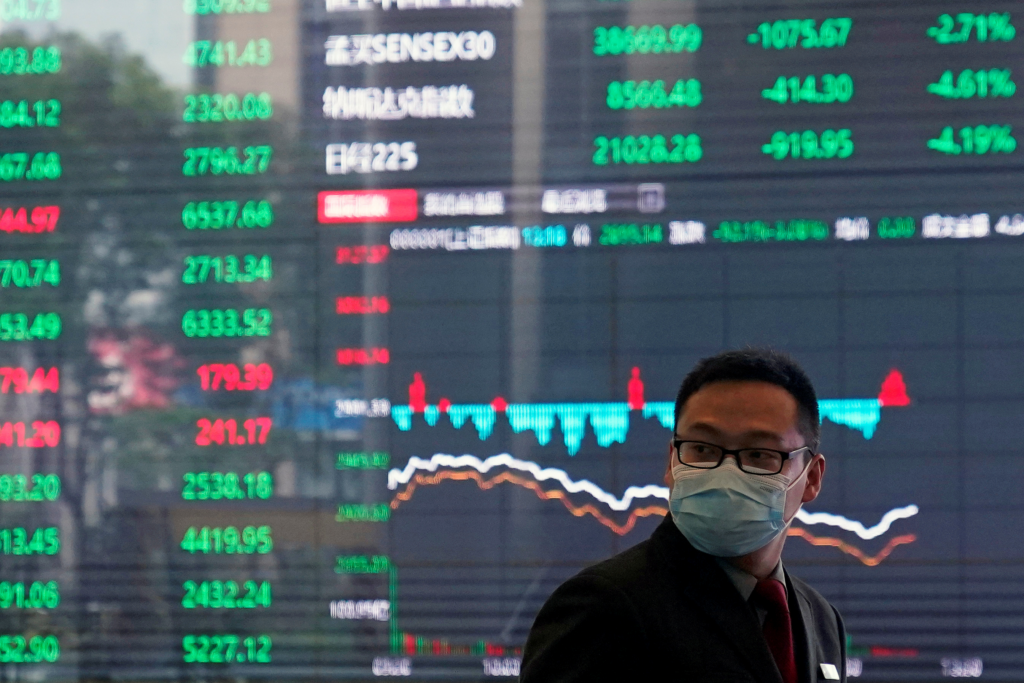Mainland share benchmarks fell for five days in a row beginning last Tuesday after data revealed the economy’s rebound after its reopening from COVID restrictions was uneven. Analysts said the market was worried about U.S. regulations that limit technology investment.
On Tuesday, Chinese stock prices dropped for a fifth consecutive trading day as investors fretted over continued geopolitical threats and statistics revealed an uneven recovery in the country’s economy. ** The CSI300 Index of China’s largest companies was down 0.5% by midday, while the Shanghai Composite Index was down 0.4%.
Meanwhile, the China Enterprises Index fell 1.9% and the Hang Seng Index in Hong Kong fell 1.6%. Mainland share benchmarks fell for five days in a row beginning last Tuesday after data revealed the economy’s rebound after its reopening from COVID restrictions was uneven.

Analysts said market participants were fretting over reports of U.S. limitations on technological investments. “The geopolitical overhang has weighed on offshore China, i.e. Hong Kong and US-listed China stocks as the last two days saw geopolitical concerns spilling over into onshore China,” wrote Brendan Ahern, chief investment officer at KraneShares.
“The recent pullback in onshore China should get attention from policymakers,” he remarked.
Meituan’s 4.8% drop contributed to a 3.5% decline for Hong Kong-listed IT giants.
New energy shares fell 2.9% and communications equipment stocks fell 4.1% on mainland markets. In addition, investors approached this week’s meeting of the Communist Party’s top decision-making body, the Politburo, with caution.
It’s important to keep an eye on the next Politburo meeting in April. Goldman Sachs said in a note that while the better-than-expected GDP growth in the first quarter relieved some of the pressure on policymakers to engage in broad-based easing, the divergences underpinning the economy still demand for tailored support.

To paraphrase: “We expect the broad monetary and fiscal stance to be unchanged, some industry-level policies (e.g., property and internet) to loosen further.”
Sources tell Reuters that China has been pressuring banks this month to reduce deposit interest rates even further as part of the country’s ongoing drive to redirect the country’s enormous savings towards consumption and profitable investment.

